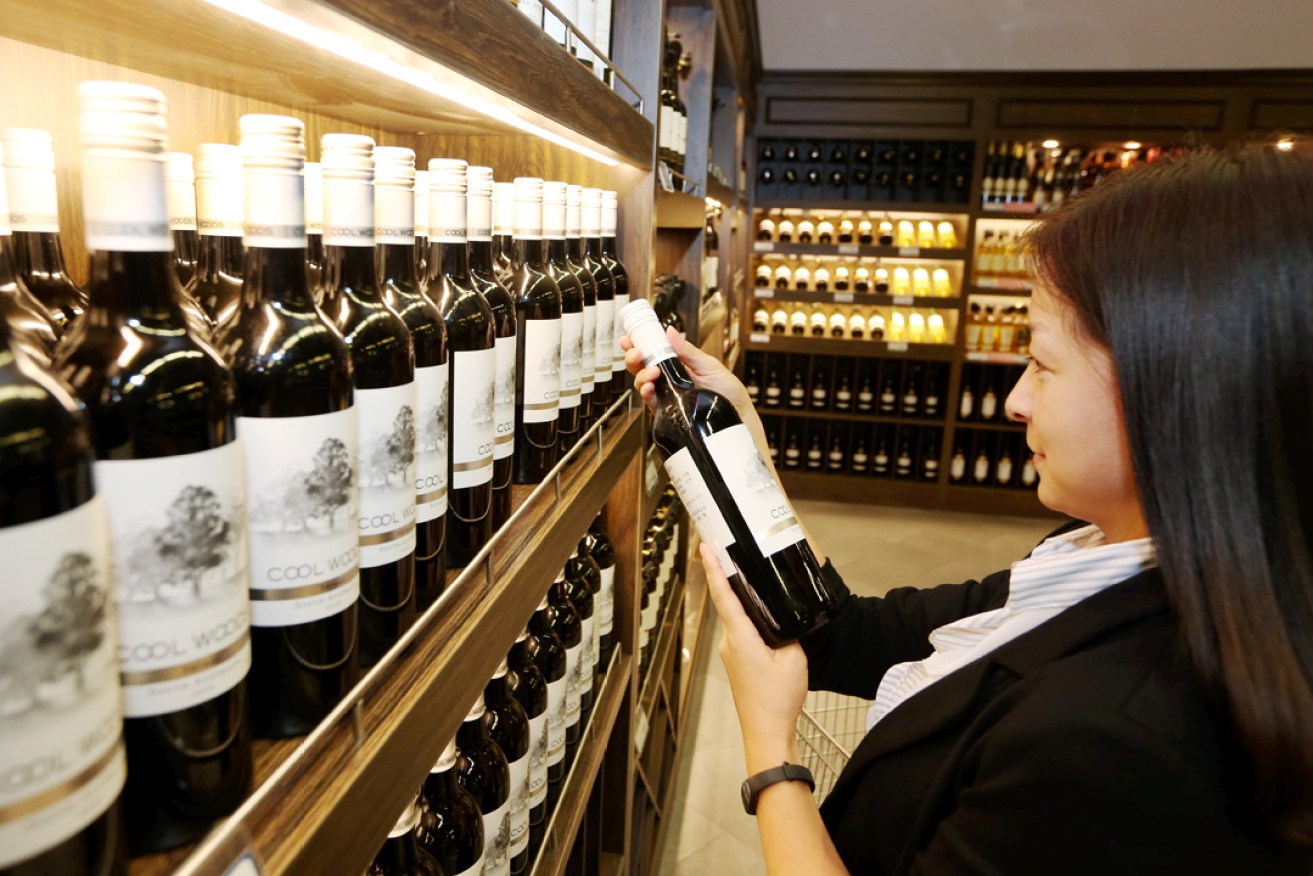Govt hopes China’s barley tariff removal will extend to wine and other exports
The Albanese Government hopes that China’s decision to remove crippling trade sanctions on Australian barley will be used as a template for other hard-hit exports such as wine.

China slapped tariffs of over 200 per cent on Australian wine. Photo: AP
Australian wine makers and beef processors have been given hope the removal of China’s tariffs on barley can be used as a template for future resolutions on their products.
But Prime Minister Anthony Albanese is tempering expectations about when he will visit Beijing.
Over the weekend the Chinese government ended crippling taxes on Australian barley imports due to “changes in the market situation of barley in China.”
Under the Albanese government trade impediments have been reduced from $20 billion to $2 billion but the majority of Australian wine exported to China still face duties of more than 200 per cent.
Agriculture Minister Murray Watt said the Chinese government had not received concessions from Australia in return for resolving the barley dispute.
“We’ve been very consistent in our position, arguing that we think that we should be following a rules based trading system, that we thought these tariffs were unfair and what we’ve also argued is that (a resolution) is in the interest of both countries,” he said on Sunday.
But Albanese said his visit to China would not be “a transactional exercise” in return for trade issues being resolved.
“I would like to take up the opportunity to visit China (and) I’ve said the whole way along, even before some of these impediments were removed, dialogue is always a good thing,” he said.
“It is in Australia’s interests to engage with China and it is in China’s interest to engage with Australia.”
Securing the barley tariff removal was the result of a united ministerial, departmental and industry effort and Watt thanked all involved.
“We definitely see this as a template for how we would like to resolve the issues that remain for wine,” he said.
“There are some other products, in particular things like beef processing establishments, that remain having trade impediments and we’d like to see them resolved as quickly as possible.”
Nationals leader David Littleproud said while reopening the barley market was a significant step, Australian wine producers were still suffering.
He hoped there would be a resolution without the need for the World Trade Organisation to step in.
“(The wine industry) lost $1.5 billion overnight, but we haven’t been able to find them new markets so we’ve got a wine glut,” he said.
“It’s important now that the government works constructively to try and reopen that market as well.”
Australian Grape and Wine head Lee McLean said the barley announcement was a positive step for the agriculture sector and the bilateral relationship.
“While there has been no change in the situation for Australian wine exports at this point, we hope this announcement may provide a template for removing import duties on Australian wine in due course,” he said.
Barley tarrifs
The Chinese government imposed the duties on barley imports in May 2020 over what it claimed were concerns about the dumping of cheap grain.
Australia will now discontinue its World Trade Organisation dispute against China over the tariffs, a case it had suspended in exchange for Beijing agreeing to a review.
Three years ago, China imposed 80 per cent duties on Australian barley bound for the world’s biggest beer market.
Albanese said the axing of the tariffs was a very positive decision.
“I have said very clearly on China that we will co-operate where we can, we will disagree where we must, but we will engage in the national interest,” he said.
The Chinese barley market took up to 70 per cent of Australian exports before the duties were introduced.
GrainGrowers chief executive officer Shona Gawel said the five-year dispute had cost the industry about $2.5 billion and the removal of the duties was welcome news.
“We’re hoping that the rebuilding of $1.2 billion annual trade is going to be a really positive one for our growers,” she said.
“The relationship with China has always been a really important one and I’m sure there’s a lot of companies wanting to pick that up and resume those strong links,” she said.
The Australian government will continue to pursue its wine dispute with the WTO, using the barley outcome as a template.
Foreign Minister Penny Wong, whose trip to China last year preceded the trade decision, said the removal of barely tariffs was the right outcome for Australian producers and Chinese consumers.
“It affirms the approach, the calm and consistent approach, that the Albanese government has taken since we have come to office,” she said.
Trade Minister Don Farrell, a key figure in the talks with Beijing, said the outcome showed the importance of the WTO dispute mechanism in defending the interests of Australia’s producers and farmers.
“It’s another very positive step in the full resumption of normal trade between Australia and China,” he said.
He said trade impediments had been reduced from $20 billion to $2 billion under the Albanese government.
-AAP




